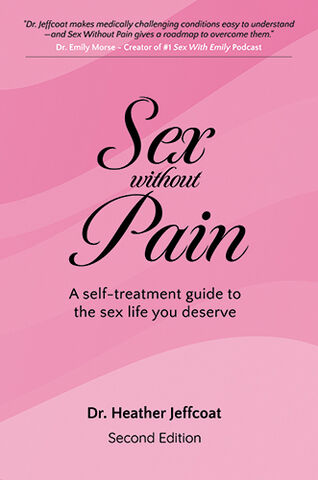Are There Non-Surgical Treatments for Pelvic Organ Prolapse?
That constant heavy feeling in your pelvic area. That embarrassing urine leakage. That bulge ‘down there’.
It took a while, but you found the courage to talk to your doctor about your symptoms. (Good for you!) Now you know your condition has a name – pelvic organ prolapse – and a treatment. But is surgery really the best option?
Research estimates that 50% of all women who give birth will develop pelvic organ prolapse at some point in life; but while pregnancy and childbirth top the list of risk factors, the condition usually develops over time from a combination of factors that can also include anything from frequent strenuous gym workouts to smoking to menopause (and even genetics).
For years, surgery was the go-to treatment plan; and it is helpful for some women. But complications are possible – and horror stories, especially about newer synthetic mesh surgeries, have trended more than once on social media in the last few years. That bad publicity, and the number of younger women seeking treatment, have led to an increase in the popularity of some non-surgical treatments for pelvic organ prolapse – pessaries and pelvic floor physical therapy.
Non-Surgical Treatment Options for Pelvic Organ Prolapse
What is a Pessary?
In simplest terms, a pessary is "a device inserted into the vagina to provide structural support". They come in a variety of shapes to meet different structural needs and control a woman’s specific symptoms. The best pessary candidates are POP patients who are pregnant or want to have children in the future, and those who prefer to start with a more conservative treatment approach. In fact, pessaries have traditionally been used with patients waiting for surgery; but half the women in one study who experienced symptom relief from a well-fitted pessary chose to delay surgery for a year or more. Additionally, although many doctors still consider pessaries a short-term solution, at least one recent study found that they are a good long-term treatment option for sexually active women. And – here’s the best news – researchers say pessary use can “significantly improve desire, lubrication, and sexual satisfaction” in POP patients. Not surprisingly, the same study found those women also reported improved quality of life.
The downside to pessary use is more of a cautionary tale than horror story. Not every patient is a candidate (22% of patients can’t be fitted for various reasons). Successful use takes a certain amount of self-management, including proper removal, cleaning, re-insertion, and reporting any complications. About three-quarters of women using a pessary to treat pelvic organ prolapse will experience a complication at some point; but most of those are minor and the majority of patients say they are still satisfied with the improved quality of life a pessary provides.
Not all pessaries are created equal, especially when it comes to sexual activity. Some need to be removed for intercourse, and a few don’t allow intercourse at all. If you’re considering short- or long-term pessary use, it’s important to be very open with your healthcare professional and your partner(s) about your sexual activity and what to expect from the device that is best for you.
PFMT or Pelvic Floor Muscle Training
But there’s another treatment option for women who suffer from pelvic organ prolapse – pelvic floor physical therapy, specifically pelvic floor muscle training (PFMT). It’s performed in-office by a licensed and experienced pelvic health physical therapist and often involves home exercises as well. While it can’t reverse pelvic organ prolapse, significant research shows it can put the brakes on the condition – keep it from advancing, reduce the symptoms, and improve sexual activity. Many POP patients are highly satisfied with the results of pelvic floor physical therapy, especially when compared to the risks and lifestyle effects of surgery. Experts agree that it is an excellent first step in treating the condition.
Femina PT's Approach to Pelvic Organ Prolapse Treatment
At Femina PT, pelvic floor physical therapy is the hallmark of our treatment program… and it works for more than POP! Whether you’re looking for non-surgical treatments for pelvic organ prolapse, are experiencing urinary incontinence, or dealing with painful sex – our expertly trained and highly experienced therapists can help.
References
Rantell A. 2019. Vaginal Pessaries for Pelvic Organ Prolapse and Their Impact on Sexual Function. Sexual Medicine Reviews 7:4 597-603.













